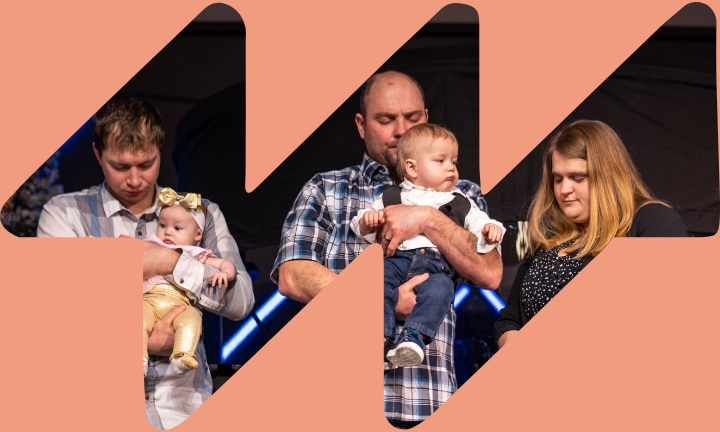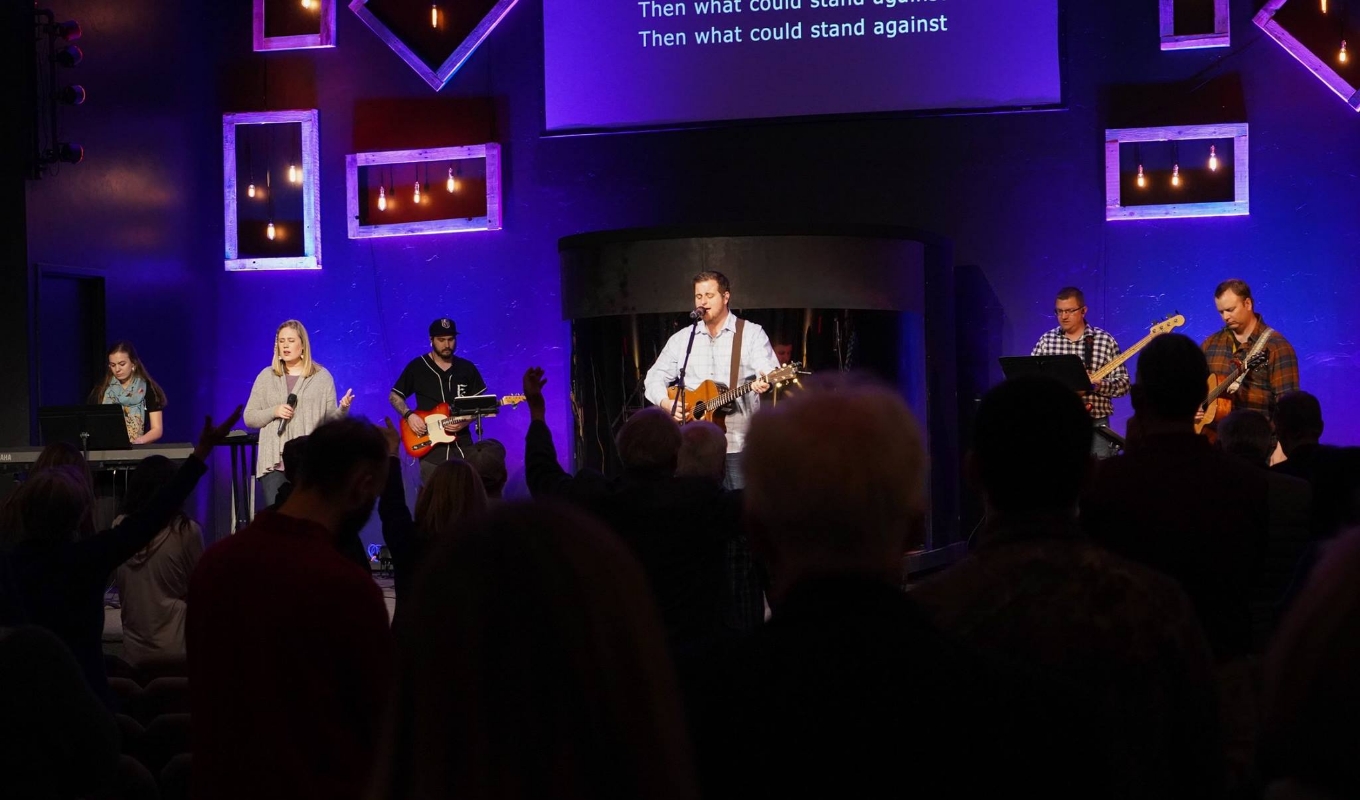We had been out of college for about two years. We were in our first Pastorate, in a small dairy community in the Midwest. We were expecting our first child with much anticipation. My wife woke me up in the middle of the night and told me something was wrong with her pregnancy. We quickly got ready to make the 25-mile trip to the nearest hospital. My wife delivered our first child, but it was too early for the heart and lungs of the child to be fully developed. The little boy lived for several hours, then passed away. While my wife was still in the hospital, a few of us gathered in a small country cemetery and committed Roland Ross to the Lord Jesus and His safe keeping. Now, whenever we are near that small cemetery when traveling to see family, we stop at that cemetery, and stand in front of that grave, that holds a little boy that never made it. That was our first experience in suffering. It was not a physical suffering that one may experience when one is physically ill or breaks a bone, but an emotional suffering that reaches down into the core of our being. Then we ask, “why did this happen”, which heads to doubt and a double mind. James mentions this double mind in the first verses of his Epistle.
Each of us has a personal story of suffering. It has come in various ways. For some, it is a broken or sick body. For others it is a failed or broken relationship, a failed marriage, a friend that forsakes us, or perhaps an expectation that never came to pass. There is nothing that will match the suffering of losing a mate or a child. We lost a dream, and in the loss, we also lost hope. We suffer.
Elie Wiesel was a 16-year-old Jewish boy from Romania when the Nazi purge came through his region. His family, which included his parents, and two sisters were taken to Auschwitz, where his parents died. He was near death when the Russian front liberated the camp. He ended up as an orphan and was sent to France, without family and classified as a person without a country. He wrote a book called “Memoirs”. In it he tells the story of his journey from a homeless orphan to a Professor at Boston University. Suffering will either make us or break us. He writes, ‘what is the relation between suffering and truth, suffering and redemption, suffering and spiritual maturity, suffering as a gateway to the sacred prophetic. Why is it necessary, even indisputable, to punish the body to allow the soul to soar to new heights”?
Leonard Ravenhill Pastored a CMA church in Chicago for many years. He is the author of several books on spiritual renewal and revival. Ravenhill says, “God cannot use a man greatly until He hurts him deeply”. When I first read those words, I had doubts about their truth. Could that really be true. Is it not possible to soar with the eagles without suffering? What is it about suffering that matures us? Then, as time went by and I matured in my own faith, I began to think of Bible characters. Joseph suffered deeply but was used by God greatly. Moses suffered deeply before God made a leader out of him. Jerimiah, so greatly used by God during Israel’s decadent years knew the horrors of the dungeon and the lash of the Godless King.
Then my mind goes to the Apostle Paul. He is one of my heroes from the Bible. He shares with the Corinthian church what it cost him in terms of suffering to be the leader he was. Listen to him; “three times I was beaten with rods, once I was stoned, three times I was shipwrecked, in frequent journeys, dangers of rivers, robbers, …I have been in labor and hardship, through many sleepless nights; I’ve been hungry, thirsty, without food in the cold and exposure”. What is his attitude as he looks back on a life of suffering? He mentions his “thorn in the flesh” and says, “I entreated the Lord three times that it might depart from me”. He summarizes all of his suffering by saying, “therefore I am well content with weakness, with insults, with distresses, with persecution, with difficulties, for Christ’s sake, for when I am the weakest, then I am strong”. [2 Corinthians 11-12]
Can it be that strength comes from weakness? Culture gives us examples of today’s strong leader, but Paul seems to be saying “my weakness merely drives me closer to God and to depend upon Him and that is when I am the strongest”.
I vividly recall a scene from my pastoral years. The secretary called me and said a woman, one of our members, needed to see me. She was escorted to my office. She came in and sat down, put her head in her hands and began to weep. I waited for her to compose herself. She had just come from her doctor’s consulting room. She had not been feeling well and after many exams the Doctor shared with her that she was full of malignancy. That in itself was a sword in her heart, but I knew her husband was at home in the final stages of cancer. I conducted their memorial services that were just a few months apart.
Why is it necessary to suffer? What does suffering do for me and how can it be good for me? Why would Ravenhill suggest that suffering and maturity are connected? We all accept suffering in different ways. For some, they are driven to various drugs and alcohol in an attempt to lose their emotional pain that come from suffering. That does not deal with suffering, but merely numbs our consciousness. The suffering is still there when we sober up. Some people travel in an attempt to get away from suffering. They are always on the move because if they stand still, they must think of their troubling issues and this they do not want to do.
Suffering, from whatever source, must be faced and dealt with. When this happens. it makes me investigate my soul. Suffering will reveal my weakness, my vulnerability. Suffering will reveal my lack of inner resources of my own. It will cause me to see my weakness and drive me to ask God for His help. Moses was overwhelmed by the needs of the people God has asked him to lead. As he saw his own weakness, it made him ask Jehovah for help. It is only God that will give us the insight that we need during those dark times of life. In suffering, we will find who we really are and if honest, admit our fallibility. As we turn to God in our suffering, we will learn of His care and compassion and our faith grows. We become mature through suffering.
The chorus of one of the churches hymns says it so well.
“It will be worth it all
When we see Jesus.
Life’s trials will seem so small
When we see Christ.
One glimpse of His dear face
All sorrow will erase.
So bravely run the race
‘till we see Christ.



